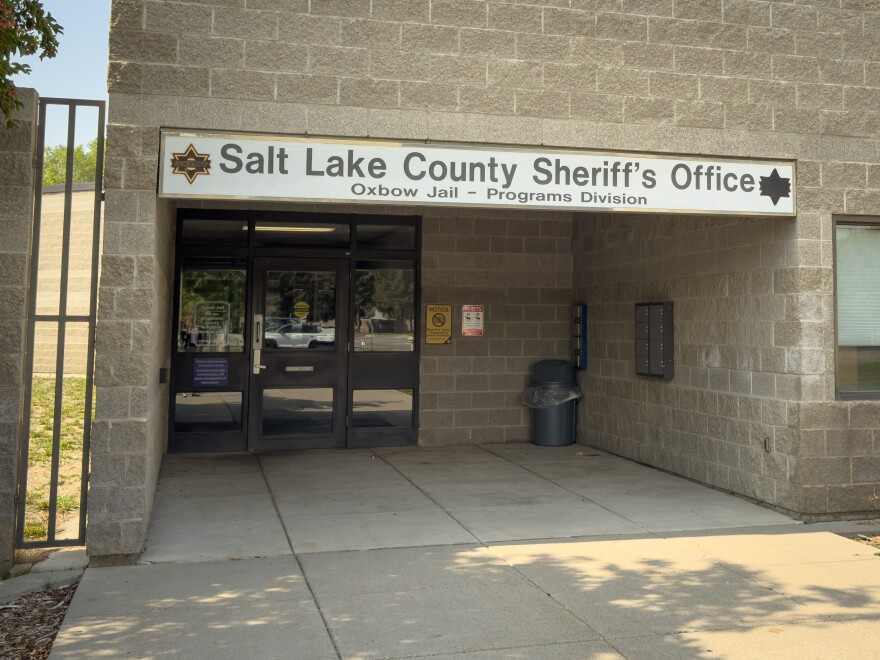Overcrowding is a long-lived issue in the Salt Lake County jail system. One Utah lawmaker thinks a solution could be in our pockets: cellphones.
Earlier in September, a new law restricted one of the tools the county sheriff’s office used to control the jail population, so the corrections bureau of the Salt Lake County Sheriff’s Office thinks overcrowding will persist. One solution is increasing capacity. The Salt Lake County council approved a sales tax hike earlier this year to fund opening more jail beds.
But state Rep. Grant Miller said that won’t fix the underlying issue. If there are more beds, he said the county will find ways to fill them.
“The goal shouldn't be to incarcerate, unless there's a public safety risk,” he said. “If there's not a public safety risk, then we need to take a different approach.”
Miller has a new answer drawn from what he sees as a public defender. Warrant service bookings for low-level offenders could drop, he said, if the state gave some inmates a cellphone.
Nearly 40% of the inmates at the Salt Lake County jail were booked for warrant service as of Sept. 15, according to county data. These are individuals who had a warrant out for their arrest. Shima Baughman, Woodruff J. Deem Professor of Law at Brigham Young University Law School, said that doesn’t always mean they committed a crime.
“Often they, you know, missed a court date, they failed to check in on with a parole agent or probation or they didn't pay a fine,” she said.
As a public defender, Miller said he often sees these warrant bookings as a result of communication gaps with people experiencing poverty or homelessness.
“If I don't have contact with my clients, the likelihood of them being able to appear is very low,” Miller said. “And the truth is, it's kind of difficult to know when and where you have court, if no one can tell you where it is.”
He said they’re more likely to show up when he can contact them, and a state-issued phone could help.
Leading up to an individual’s court date, a pre-paid phone could be loaded with contacts for their public defender, probation officer and case worker, along with housing and homeless services. Miller said that could get rid of barriers and help them stabilize faster.
Increased communication can decrease some warrant service bookings, Baughman said, like failure to appear charges. A study from the Harvard Kennedy School found arrest warrants issued for missing court dates dropped more than 20% when clients had automated text reminders about their appearance.
His concept is still new, Miller said, and he’s working to draft legislation. He said he’s getting help from policymakers to nail down the idea and address potential concerns.
“What we're trying to do is just get a handful of cellphones in the people's hands,” he said. “But my hope is that this is going to have a bigger and outsized impact against a problem that we've been struggling with for a long time now.”





